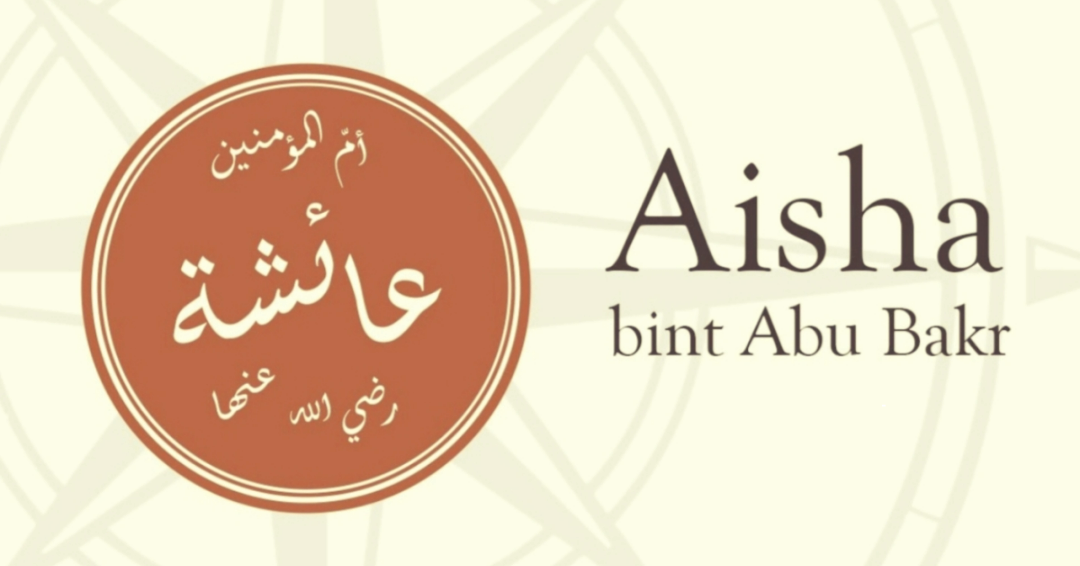Aisha bint Abu Bakr (رضي الله عنها) is one of the most prominent and influential women in Islamic history, known for her exceptional contributions to the religious, political, and social spheres of early Islam. She was the daughter of Abu Bakr, the first caliph after Prophet Muhammad’s death, and the beloved wife of the Prophet Muhammad (صلى الله عليه وسلم). Her life and legacy have left a lasting impact on Islamic scholarship, jurisprudence, and the role of women in Muslim society.
Aisha bint Abu Bakr

Aisha was born around 614 CE into a respected and powerful family. Her father, Abu Bakr, was a close companion and trusted adviser of Prophet Muhammad and one of the earliest converts to Islam. Aisha’s marriage to the Prophet Muhammad was both a personal and a strategic alliance that strengthened the Prophet’s ties with Abu Bakr. She was the youngest of his wives and became known as “the Mother of the Believers” (Umm al-Mu’minin).
Aisha was known for her sharp intellect, inquisitive nature, and profound memory. She actively participated in religious discussions and was deeply involved in the transmission of Islamic knowledge. Her chamber was where the Prophet spent much of his final days, signifying the deep affection and trust he had in her.
Contributions to Islamic Scholarship and Hadith Transmission
Aisha bint Abu Bakr is widely regarded as one of the greatest narrators of hadith (sayings and traditions of the Prophet Muhammad). She is credited with transmitting over 2,000 hadiths, covering various aspects of Islamic law, ethics, rituals, and daily life. Her narrations played a crucial role in shaping Islamic jurisprudence and theology, offering insights into the Prophet’s private and public life.
Her knowledge extended beyond hadith to medicine, poetry, and history. Early scholars such as al-Zuhri praised her intellectual capabilities, and she became a source of guidance for many companions and the succeeding generation (tabi’in) of Muslims. Her role as a teacher and scholar was extraordinary, especially considering the societal norms that restricted women’s public roles at the time.
Political Role and the Battle of the Camel
After the death of Prophet Muhammad, Aisha remained active in the Muslim community, both socially and politically. She lived through the caliphates of Abu Bakr, Umar, Uthman, and Ali, engaging in public discourse and religious education. Aisha’s political involvement became particularly notable during the First Fitna (the first Islamic civil war) after the assassination of Caliph Uthman.
She demanded justice for Uthman’s killers and opposed Ali ibn Abi Talib’s caliphate, leading to her involvement in the Battle of the Camel in 656 CE. Aisha, alongside companions Talha and al-Zubayr, mobilized forces against Ali. The battle near Basra resulted in Ali’s victory, and Aisha was treated with respect and sent back to Medina. Following this, she withdrew from active political life, focusing on teaching and scholarship.
Legacy and Influence
Aisha bint Abu Bakr’s legacy is multifaceted. She is revered in Sunni Islam as a paragon of knowledge, piety, and leadership. Her scholarly contributions helped preserve the Prophet’s teachings and provide a foundation for Islamic law. Aisha’s life demonstrated that women can hold influential roles in religious scholarship and community leadership. She remains a role model for Muslim women who aspire to learn and participate actively in their communities.
Though Shia perspectives often view her political role critically, her intellectual and spiritual significance remains undisputed in the broader Islamic tradition. Her home became a center for religious learning, and many sought her guidance throughout her life until her death in 678 CE.
FAQs
Who was Aisha bint Abu Bakr?
Aisha bint Abu Bakr was the youngest wife of Prophet Muhammad, the daughter of Abu Bakr (the first caliph), and a prominent Islamic scholar and hadith narrator.
What are Aisha's main contributions to Islam?
She transmitted over 2,000 hadiths, taught many companions and scholars, and played a crucial role in interpreting Islamic law and theology.
What was Aisha's role in the Battle of the Camel?
She led a political movement demanding justice for Caliph Uthman's assassination and fought against Ali's caliphate; her forces were defeated in the battle near Basra.
How is Aisha remembered in Islamic tradition?
She is revered as a knowledgeable scholar, the Mother of the Believers, and a role model for Muslim women, especially in Sunni Islam.
When did Aisha bint Abu Bakr die?
Aisha died in 678 CE after spending about 20 years teaching, narrating hadith, and guiding the Muslim community following the Prophet's death.
Conclusion
Aisha bint Abu Bakr was not only the wife of the Prophet Muhammad but a towering figure in early Islamic history. Her intellect, scholarship, and political engagement shaped the trajectory of Islam after the Prophet’s death. She preserved and transmitted thousands of hadiths that remain essential to understanding Islamic teachings and law. Despite the challenges she faced, including her controversial role in the Battle of the Camel, Aisha emerged as a symbol of knowledge, resilience, and empowerment for Muslim women. Her enduring influence continues to inspire and guide Muslims worldwide, making her one of the most important personalities in Islamic heritage.


